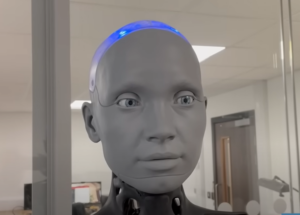The introduction of robots can increase the productivity of companies, but recent studies show that autonomous machines do not necessarily make people more efficient, but instead reduce the sense of duty of those who work with them.
Researchers at the Technical University of Berlin wanted to determine whether employees put in less effort when they think their personal contribution will be overshadowed by the robot. To do this, they asked 42 volunteers to examine pictures of electronic circuits for possible errors and said that a computer would monitor their work.
Participants in the study, published in the journal Frontiers in Robotics and AI, were divided into two groups. Members of the first group were asked to look at circuits that the robot had already inspected. Others were told that they were solely responsible for quality control of the circuits.
The experiment showed that the volunteers working with the machine were less conscientious than the others. They tended to detect an average of 3.3 errors per image, compared to an average of 4.2 errors for their independent counterparts.
These results suggest that the first group observed electronic circuits less carefully than those of the second group. “Participants continued to exert motor effort to search for errors, but this appeared to be done with less mental effort and attention to the information being tested,” the researchers wrote.
“Changes in mental effort are much more difficult to measure, but must be minimized to ensure good performance. “Hence, experts believe it is important to understand and predict the consequences that introducing robots to the workplace can have on human teams.”
Human-machine collaboration can facilitate certain tasks, but it can lead to a loss of employee motivation as they may feel overshadowed by the technology.
The same phenomenon can also be observed in all-human teams and is known as “social loafing”. This concept, theorized by French agricultural engineer Maximilien Ringelmann, defines how individuals tend to reduce the effort they put into group efforts in proportion to group size. In other words, the more people that come together on a project, the less effort they are likely to exert.
This study shows for the first time that social loitering can also apply to human-robot interactions.
Source: FMT

